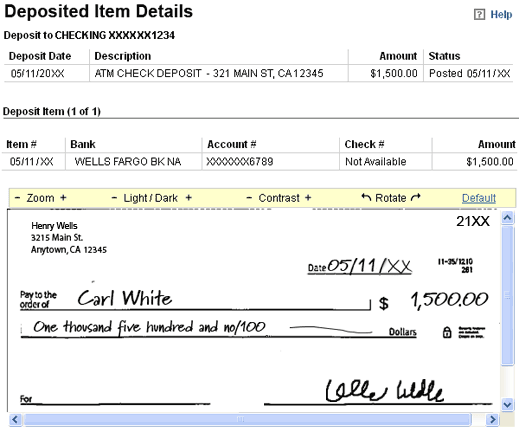
Hinting at further penalties ahead, the CFPB official said regulators “must consider whether additional limitations need to be placed on Wells Fargo” beyond the unprecedented asset cap imposed in 2018. Officials also made clear on Tuesday that Wells Fargo is not nearly out of the penalty box with regulators.Ĭhopra described Wells Fargo as a “repeat offender” and a “corporate recidivist,” adding that Tuesday’s fine is just an “initial step” towards holding the bank accountable.ĭuring a call with reporters, Chopra said the new settlement should not be read as a signal that “Wells Fargo has moved past its long-standing problems or that the CFPB’s work is done here.”įor instance, Chopra noted that the settlement does not provide immunity for individuals at Wells Fargo, and the agency recognizes the $3.7 billion in fines and restitution will not fix the bank’s problems.Īlthough Chopra credited Wells Fargo with making some progress, he said it’s not clear “they are making rapid enough progress” and said the agency is concerned that the bank’s product launches, growth initiatives and profit-boosting efforts have “delayed needed reform.” “Wells Fargo’s rinse-repeat cycle of violating the law has harmed millions of American families,” Rohit Chopra, the CFPB’s director, said in a statement.


The misconduct described by the CFPB echoes previously reported revelations that have emerged about Wells Fargo since 2016 when the bank’s fake-accounts scandal created a national firestorm. (WFC) to pay the $1.7 billion civil penalty in addition to more than $2 billion to compensate consumers for a range of “illegal activity.” CFPB officials say this is the largest penalty imposed by the agency. The Consumer Financial Protection Bureau said Wells Fargo’s “illegal activity” included repeatedly misapplying loan payments, wrongfully foreclosing on homes, illegally repossessing vehicles, incorrectly assessing fees and interest and charging surprise overdraft fees. Federal regulators fined Wells Fargo a record $1.7 billion on Tuesday for “ widespread mismanagement” over multiple years that harmed over 16 million consumer accounts.


 0 kommentar(er)
0 kommentar(er)
